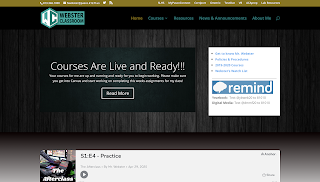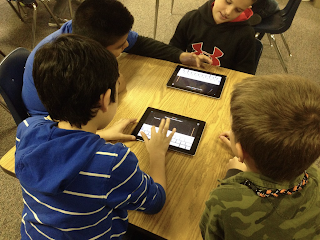Florida ELA Standards, CPALMS, & Internet Searching!
Hi everyone and welcome back to my blog! <3
This week in class, we went over ELA standards in Florida and CPALMS.
To look at ELA standards more in depth, I decided to look into second grade ELA standards. I have always wanted to teach elementary school, so getting a glimpse of what I should be expecting to see as a teacher is important. Out of the long list of second grade ELA standards, I chose the standard LAFS.2.L.3.4. This standard describes how students will be able to determine the meanings of unknown words and use multiple-meaning words & phrases in the correct context. Sub-standards of this also include using sentences as context to determine the meaning of the word, know how the meaning of a word has changed when a prefix is added, use root words as clues, figure out what compound words mean by breaking them down, and learn definitions by utilizing dictionaries and glossaries. To be honest, I am not too sure I am completely ready to implement this standard based on my current skill set, but I do think that even if unprepared, I could learn very quickly. Second grade is still a young age to teach, and it incorporates skills that are used lifelong, so even though I do not have much of a teaching skill, I could use what I already know, and teach it pretty adequately.
CPALMS is a website that provides many toolkits and resources for Florida Educators. To go along with the second grade ELA standards I chose earlier, I went with second grade on CPALMS but decided to give myself a bit more variety by looking at resources for math. I ended up choosing a resource called "Chocolate Partitioning" which is an interactive tutorial to go along with a geometry math lesson. In this interactive tutorial, students are able to go through a recap of what they already learned, and figure out how to equally divide a chocolate bar by using what they know about rows and columns. I really liked this resource because it has a nice light tone throughout the videos, and not only is it interactive, but it is also related tis something many children love: chocolate. I think it is important to use lessons that have fun references, because otherwise younger children probably would not be as interested and interactive in it if they don't know anything about or don't like the topic that is being taught.
As a teacher, it is always important to be proficient in internet searching and really, just all things internet. I know it can be difficult sometimes, but with a world that has already started its transition into digital-centered lives, it is now so vital to learn as much as possible about the internet and its capabilities. Even someone like me, who spends all day everyday on the internet, learns something new everyday. I use Google at least once a day, and I learned about the advanced search tool this past week. I honestly had no idea that was even there; usually when I use Google, I just ask my question, and if it's not with the first ten suggestions, I just give up and try something else. But now that I have learned about the advanced search tool, I'll try looking a little longer for my answer and input more specific keywords. Being a teacher, you have to be ready to get unexpected questions from your students, and you're not always going to know all the answers. In these situations, you have to be ready to tell them something like "I'm not too sure about that, but I'll do my research and get back to you on that!" I have heard that many many times throughout my school career, so I know it is bound to happen eventually. With skills like the advanced search tool, and many more, these will help find the exact answer you're looking for!
Catch you next week! :]



I liked how you framed a teacher's role in relation to unexpected questions from the students and I feel like it can be one of the difficult conversations that each needs to negotiate. What do you think about something like this 'I'm not too sure about this. Why don't we research this and inform each other?'
ReplyDelete